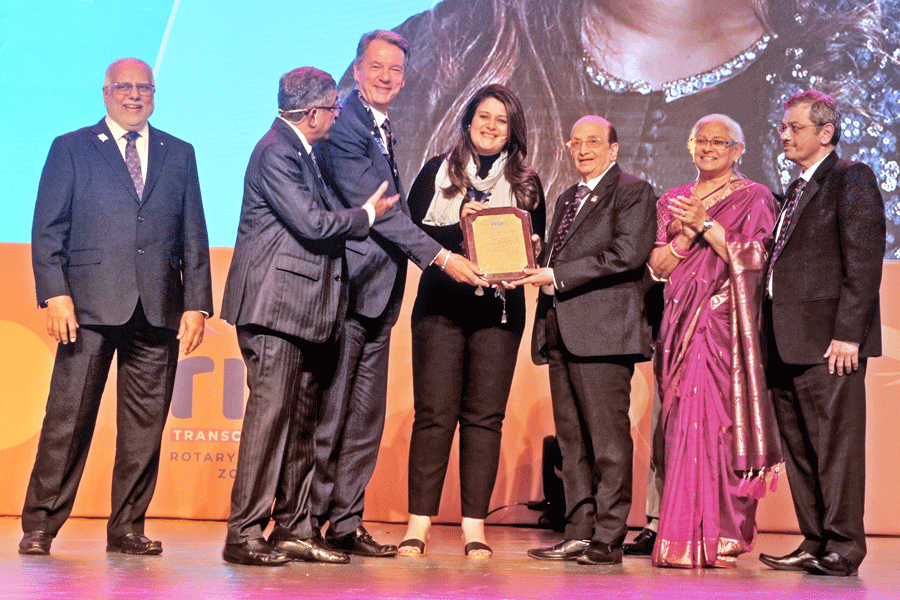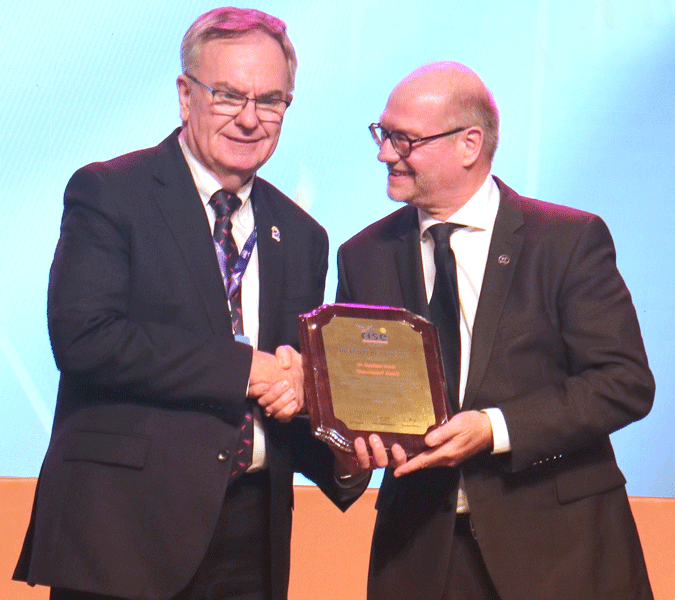
You can tell more than a million real life stories that inspire people to join Rotary. “But you have to narrate them in a consistent, structured and nuanced manner to create Brand Rotary that will take this global NGO to the next generations for a new legacy,” said Nupur Gadkari, global marketing head, Candex, a fintech company, and an expert in devising consumer brand strategies.
Addressing delegates at the Bengaluru zone institute, she said the median age of the world population is 30 years, and “this generation stays connected to the internet and hooked on to social media 24×7.” So, how you create brand Rotary with a distinct logo, colour, messaging, font and backdrop… all these will make an impact on the layman’s mind, she said.
Today’s youngsters are open to new ideas, emerging tech like ChatGPT, artificial intelligence, etc, as social media has penetrated their consciousness and traditional media like newspapers, TV and radio are passe. Hence, Rotary must change with the times. There is an information overload, thanks to social media, and with all this clutter, “Rotary has to stand out with a brand identity of its own. We need to adopt new technologies to draw the attention of a young market where the attention span is very low.”
Rotary is not competing with giants like Coca Cola, McDonalds, Kellogg’s or UN agencies, “but we can create a great brand on what we are… drawing on the power of our Rotary stories,” she pointed out.
Time to reflect
It is important to get our story right across the targeted people. An ‘emotional connect’ with the community is critical for building an iconic brand Rotary, and for that “Rotarians must be in sync with other members for a unified one voice, one language and one idea approach for greater impact. It has to leverage its innate power of storytelling to create a brand legacy for generations to come,” she added.
Health literacy in schools
With Rotary on the verge of achieving a polio-free world, “going forward, it can make schools promote children’s health by working with various stakeholders. For, improving children’s lives and health is an important part of Rotary’s DNA,” said Dr Rüdiger Krech, director, Health Promotion, WHO, Geneva, during a plenary session.
The health crisis during the Covid pandemic has exposed the fractures in society plagued by ecological, political, commercial, digital and social determinants affecting health and leading to social inequities, within social groups and nations, he said. Also, climate change, biodiversity loss and pollution threaten humanity.
The Ottawa Charter for Health Promotion, adopted in 1986, calls for developing networks with villages, cities, schools, colleges, offices, workplaces, homes and markets for “setting up a conducive environment to address health risk factors in a globalised world.” Schools are a unique setting for preventive intervention. “Schools offering health literacy will benefit not only the students, but also their parents, teachers and local communities.” They will allow children to develop cognitive and socio-emotional skills for healthy behaviour.
“The example of polio shows how complex the eradication of a disease is. Your teams are working hard to catch the last wild polio cases in Pakistan and Afghanistan. This requires combatting misinformation and building trust in the communities.” Expressing optimism that “we all will celebrate a huge victory of public health after the elimination of polio,” he said, “the world today is much different from what it was in 1979, when Rotary took up the fight against polio.” While there were around 200 million travellers in 1979, today there are around 1.6 billion in a year, a phenomenal growth in tourism, Krech said. He urged Rotary to take the lead in promoting schools that deliver health literacy across the world to reduce the NCD risk factors.






